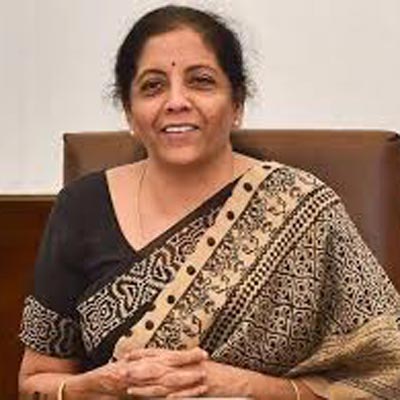Hiking Income Tax Appeal Limit To Reduce Litigation: Finance Ministry
By FnF Correspondent | PUBLISHED: 20, Aug 2019, 18:22 pm IST | UPDATED: 22, Aug 2019, 1:14 am IST
 Delhi: The finance ministry's decision to significantly increase the limit for the income tax department to appeal disputes in higher forums will reduce litigation and ensure smoother transition to the proposed direct tax code, say experts. The monetary limit for an appeal before the Income Tax Appellate Tribunal has been increased to Rs 50 lakh from Rs 20 lakh by the Central Board of Direct Taxes (CBDT).In case of high courts, the limit has been doubled to Rs 1 crore and in case of Supreme Court, the revised limit for filing appeal has been increased from Rs 1 crore to Rs 2 crore
Delhi: The finance ministry's decision to significantly increase the limit for the income tax department to appeal disputes in higher forums will reduce litigation and ensure smoother transition to the proposed direct tax code, say experts. The monetary limit for an appeal before the Income Tax Appellate Tribunal has been increased to Rs 50 lakh from Rs 20 lakh by the Central Board of Direct Taxes (CBDT).In case of high courts, the limit has been doubled to Rs 1 crore and in case of Supreme Court, the revised limit for filing appeal has been increased from Rs 1 crore to Rs 2 crore
It is for the second time that the limit has been raised within a year."The CBDT has once again increased the monetary limits for the filing of income-tax appeals by the Tax Department before the Tribunal, High Courts and Supreme Court.
"This will further help in de-clogging the courts and also help the Department in focussing its resources on high value/complex appeals. Reducing the pending litigation under the existing income-tax law would also ensure smoother transition into the new Direct Tax Code," said S Vasudevan, Partner, Lakshmikumaran and Sridharan Attorneys.
Experts opined that one of the reasons to raise the monetary limits could be that the revenue department has fared poorly in the appeals filed by it, which is evident from the Economic Survey of 2017-18.
Vasudevan said the survey had stated that while the departmental appeals account for 85 per cent of the total number of appeals, the department was found to have a failure rate of more than 65 per cent.
Frank D'Souza, Partner & Leader - Corporate and International Tax, PwC India, said the tax administration's step to increase the thresholds for filing of appeals by the revenue department continues on its series of similar measures that it has been undertaking over the past 4-5 years.
"This is a welcome move. However, the administration should put some serious thought behind a litigation withdrawal scheme along the lines that has been recently introduced in relation to indirect taxes," D'Souza said.
S R Patnaik, Partner and Head-Taxation, Cyril Amarchand Mangaldas, said that with this decision, the number of outstanding litigation cases is expected to come down which will enable the government to focus its limited resources on more revenue accretive cases.
 Delhi: The finance ministry's decision to significantly increase the limit for the income tax department to appeal disputes in higher forums will reduce litigation and ensure smoother transition to the proposed direct tax code, say experts. The monetary limit for an appeal before the Income Tax Appellate Tribunal has been increased to Rs 50 lakh from Rs 20 lakh by the Central Board of Direct Taxes (CBDT).
Delhi: The finance ministry's decision to significantly increase the limit for the income tax department to appeal disputes in higher forums will reduce litigation and ensure smoother transition to the proposed direct tax code, say experts. The monetary limit for an appeal before the Income Tax Appellate Tribunal has been increased to Rs 50 lakh from Rs 20 lakh by the Central Board of Direct Taxes (CBDT).